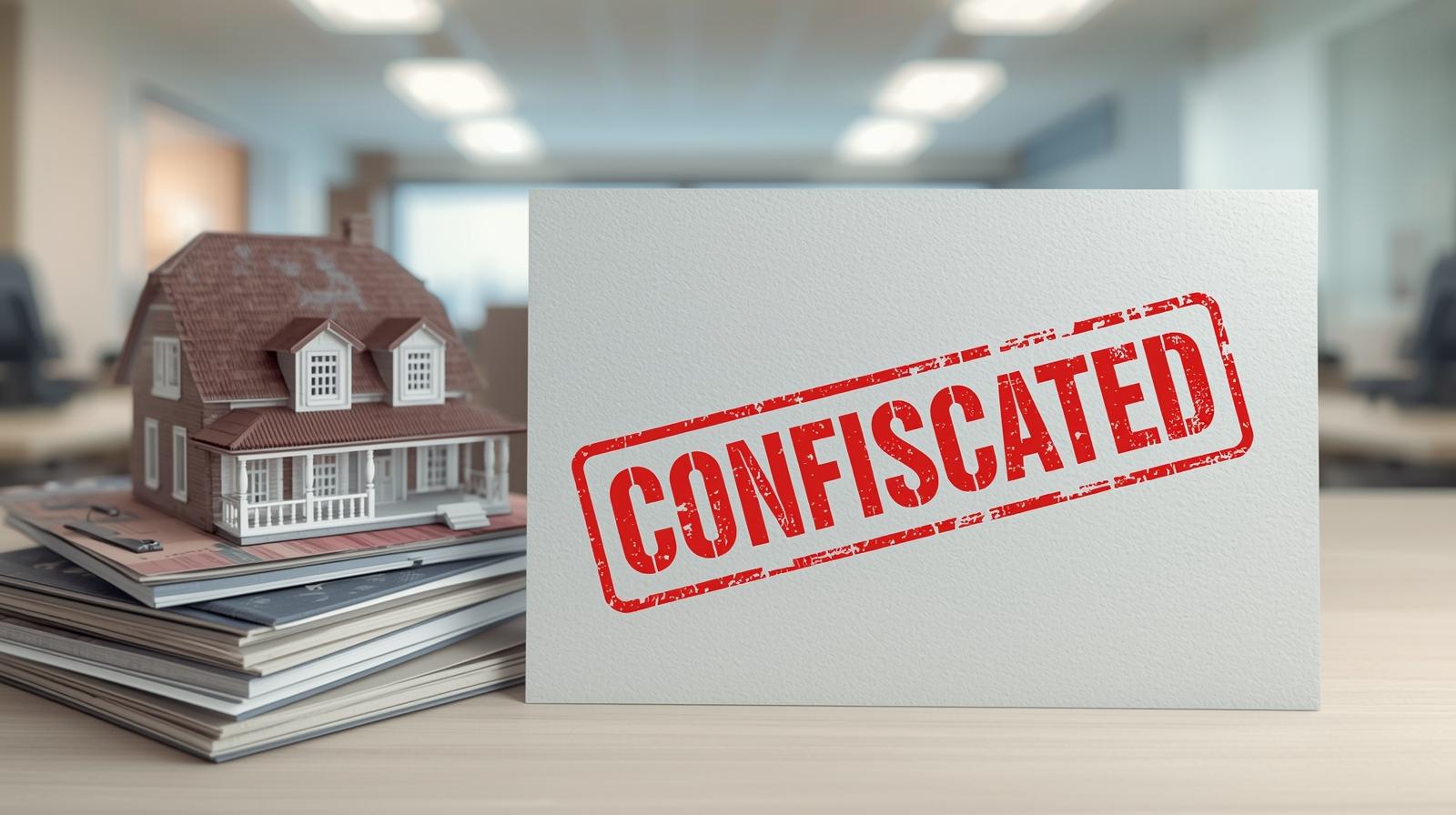Share this article
Since the 1979 Revolution, Iranian courts have issued countless confiscation orders in Iran under Article 49 of the Constitution, targeting assets allegedly acquired through unlawful means. These orders often resulted in the seizure of land, homes, factories, or businesses—frequently affecting individuals who later became part of the Iranian diaspora.
Today, many former owners or their heirs face a complex international problem: Will foreign courts enforce Iranian confiscation orders against dual nationals or their property abroad?
This article examines the international recognition of Iranian confiscation orders, the risks for dual nationals, and the legal strategies available to protect assets both inside and outside Iran. It also explains how tools like the Mikhak system allow claimants to fight back, even without returning to Iran.
Understanding Iranian Confiscation Orders
Article 49 of the Iranian Constitution
Article 49 empowers the state to seize property acquired through illegitimate means, including:
- Bribery, embezzlement, or misuse of public funds
- Usury (riba) or fraud
- Abuse of government contracts or monopolies
- Theft or smuggling
- “Other illegitimate means” (a catch-all clause used to broaden confiscations)
These orders are issued by specialized Article 49 Courts, and confiscated assets are often transferred to government agencies, quasi-state organizations (Bonyads), or the public treasury.
Scope of Confiscation
- Domestic: Direct seizure of property located in Iran.
- International implications: Attempts to enforce confiscation orders against property owned abroad by Iranians or dual nationals.

Do Foreign Courts Recognize Iranian Confiscation Orders?
The Principle of Non-Enforcement of Foreign Public Laws
In international law, foreign courts generally do not enforce confiscation orders issued under another country’s public law. This doctrine protects individuals from extraterritorial application of penal or revenue laws.
For example:
- A confiscation order from an Iranian court targeting assets in Europe would not automatically be recognized by a French or German court.
- However, Iran could request recognition through bilateral treaties or international cooperation agreements, which most Western states approach cautiously.
Distinction Between Civil Judgments and Confiscations
- Civil judgments (e.g., inheritance or contract disputes) may be recognized abroad if they meet local requirements.
- Confiscation orders, however, are often seen as penal in nature and are rarely enforceable outside Iran.
Practical Reality for Dual Nationals
- If a dual national owns property in Canada, the UK, or the EU, Iranian confiscation orders will not directly strip them of those assets.
- However, the risk lies in assets located in Iran, where enforcement is straightforward and often immediate.
Risks for Dual Nationals
- Domestic Assets: Homes, farmland, or inherited property in Iran remain vulnerable.
- Inheritance Claims: Children abroad may be blocked from registering inherited property if the estate was previously confiscated.
- Cross-Border Proceedings: While rare, Iran may attempt to present its confiscation orders in foreign proceedings, requiring legal defense.
- Travel Risks: Dual nationals who return to Iran may face obstacles asserting property rights if confiscation orders exist.
Legal Avenues to Challenge Confiscation
In Iran: Filing a Challenge
- Expats can challenge confiscation orders in Article 49 courts by proving the property was legitimately acquired.
- A real estate lawyer in Iran is essential for managing filings, collecting evidence, and appearing in hearings.
Abroad: Defending Against Recognition
- If Iran attempts to enforce a confiscation order abroad, dual nationals can rely on the public law doctrine to argue against recognition.
- Foreign courts typically reject confiscation enforcement, but proper legal representation is vital.
Practical Steps for Expats and Dual Nationals

1. Appointing a Lawyer in Iran through Mikhak
Expats do not need to travel to Iran to challenge confiscations. Instead, they can appoint a lawyer using the Mikhak consular system, which authenticates powers of attorney through Iranian embassies abroad.
2. Collecting Ownership Documents
Even decades later, claimants should gather:
- Title deeds, inheritance certificates, or sale contracts
- Tax receipts or utility bills
- Bank transfers showing purchase funds
- Witness testimony
3. Coordinating Legal Strategy Abroad
For dual nationals with assets in multiple jurisdictions, lawyers in both Iran and the foreign country may coordinate defenses against potential recognition of confiscation orders.
Common Mistakes to Avoid
- Relying on unlicensed agents: Only Iranian lawyers can represent clients in court.
- Submitting incomplete claims: Weak filings reduce chances of restitution.
- Confusing foreign inheritance rulings with enforceable rights in Iran: A probate order from London or Toronto must be recognized by Iranian courts before it affects Iranian property.
- Delaying action: Passage of time makes document recovery harder and weakens legal arguments.
Remedies Available
- Restitution in Iran
In rare cases, property may be returned if illegitimate acquisition cannot be proven. - Compensation
Courts may award monetary damages, though often below market value. - Settlement with Authorities
Negotiations with Bonyads or state organizations may lead to partial settlements or alternative property allocations. - Foreign Protection of Assets
Dual nationals can usually safeguard property abroad from Iranian confiscation attempts.
How MJK Law Firm Supports Clients
Our Real Estate Law team assists clients by:
- Evaluating whether confiscation orders can be challenged in Iran
- Drafting and registering powers of attorney through Mikhak
- Representing clients before Article 49 courts
- Retrieving deeds and archival documents from Iranian registries
- Coordinating with foreign counsel to protect overseas assets
- Negotiating compensation or settlements with Iranian authorities
We approach each case with sensitivity, recognizing that these disputes often involve not just financial loss but family history and identity.
FAQ
1. Will a UK or EU court enforce an Iranian confiscation order?
Generally no, because foreign courts refuse to enforce another country’s confiscatory public laws.
2. Can I challenge a confiscation order if I live abroad?
Yes, by appointing a lawyer in Iran through the Mikhak system.
3. What if my parents’ property was confiscated and I inherited it abroad?
You may still file a claim as an heir, provided inheritance rights are established under Iranian law.
4. What if I already have a probate judgment from abroad?
It must be recognized by an Iranian court before it affects Iranian property.
5. Is compensation guaranteed?
No. Compensation depends on the strength of evidence and court discretion.
Conclusion
For dual nationals and members of the Iranian diaspora, confiscation orders issued in Iran raise difficult cross-border questions. While such orders have immediate effect inside Iran, their recognition abroad is limited by international law. That means former owners and heirs still have room to defend their rights and pursue remedies—if they act with the right legal support.
If your family property was subject to confiscation in Iran, or if you are concerned about defending assets abroad, the next step is clear. Contact a real estate lawyer in Iran today to assess your options, appoint counsel through Mikhak, and begin protecting your rights both at home and internationally.
